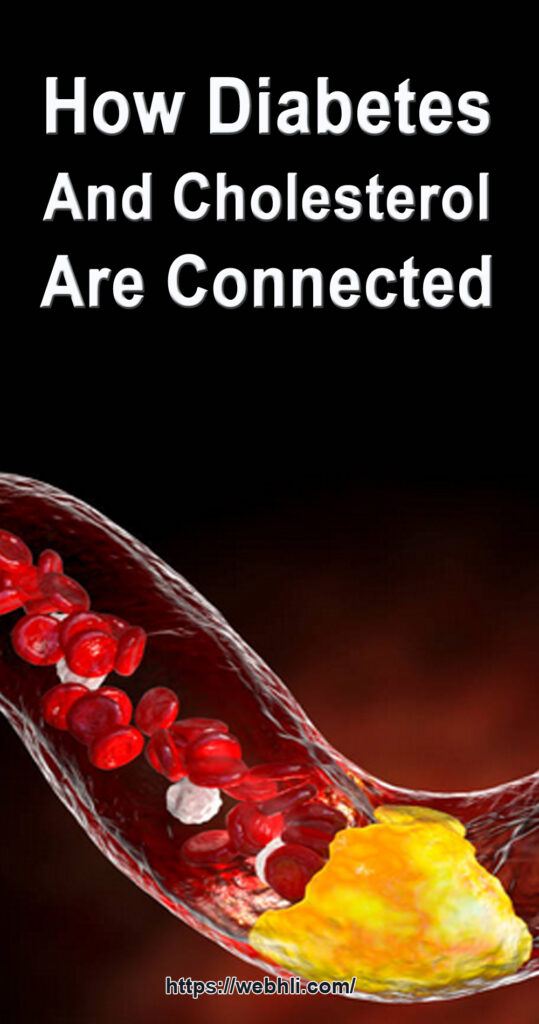
While Type 2 diabetes, in and of itself, can be a major obstacle to deal with, it is often the associated complications that can also dramatically affect your health. One of the areas Type 2 diabetes effects is the level of fats in your blood... total cholesterol, triglycerides (the major form of fat in our bodies), as well as your LDL (low-density lipoprotein), and HDL (high-density lipoprotein). These fatty globules are capable of narrowing or constricting the flow of blood in your blood vessels.
1. How much does Type 2 diabetes really affect cholesterol? Studies show diabetics have more incidences of abnormal cholesterol than any other group of people. This alone is the reason why diabetes is so closely associated with heart disease and stroke.
Check out these related articles, too:
Superfoods to Help Lower Your Blood Sugar
5 Types of Superfoods to Improve Your Blood Sugar Levels
The Skin Problems Resulting From Type 2 Diabetes
How To Stop Diabetes From Stealing Your Vision!
Diabetes Natural Home Remedies – Worth a Try?
Can Magnesium Prevent Diabetes?
Zinc Shown to Promote Insulin Production In Diabetics
Prevent Side Effects From Diabetes Drugs
Why You Should Stop Taking Drugs for Your Diabetes
What Does It Mean To “Reverse Diabetes?”
2. Why is the connection between diabetes and cholesterol so strong? Because when blood sugar levels are too high, the sugar attaches to LDL, or "bad" cholesterol. When the two merge, it allows the LDL to remain in the bloodstream for a longer period of time, creating more damage. This also causes plaque to form within the walls of your blood vessels, causing even more damage while elevating your triglyceride levels.
3. What are considered to be healthy cholesterol levels? LDL levels should be less than 100 mg/dL, with triglycerides being 150 mg/dL, or less. The lower they are, the better.
The best way to lower your cholesterol levels is through eating healthy foods and exercise...
- a diet low in fat and high in vitamins and nutrients with the right amount of whole grains is recommended.
- following a low-glycemic-index (low GI) diet will help you lose weight because it's more satisfying for the calories or kilojoules consumed, and it has been linked to lower cholesterol levels, a lower risk of heart disease, and improved endurance when exercising.
- at the same time, the diabetic has to be willing to exercise to burn fat and help keep circulation at optimal levels.
The clearer your blood vessels are of plaque buildup, blood will be able to flow freely, helping your heart, brain and the rest of your body. Aerobics are still considered to be the best forms of exercise for this.
Limiting saturated fast is an essential part of a good diet. Since saturated fats directly increase cholesterol levels, limiting one means lowering the other. Recommendations are for no more than 6-7 % of your total daily caloric intake to come from saturated fats. This will also cause weight loss, which will also help lower blood fat levels.
While the most obvious, and most widely recommended ways to lower cholesterol levels is through diet and exercise, they are not always enough. Although they do offer relief and help the diabetic improve their overall health, there are some instances where additional help to regulate cholesterol is needed.
This help comes in the form of medications. These medications, called statins, are popular cholesterol lowering drugs prescribed by doctors to take over where diet and exercise might leave off. As a Type 2 diabetic, you need to be aware these drugs can cause high blood sugar.
How do you start to create a healthy lifestyle today so you can avoid high triglyceride and high LDL cholesterol levels?
For nearly 25 years Beverleigh Piepers has searched for and found a number of secrets to help you build a healthy body.
The answer isn't in the endless volumes of available information but in yourself.
Article Source: http://EzineArticles.com/7087030



 Protected by Patchstack
Protected by Patchstack